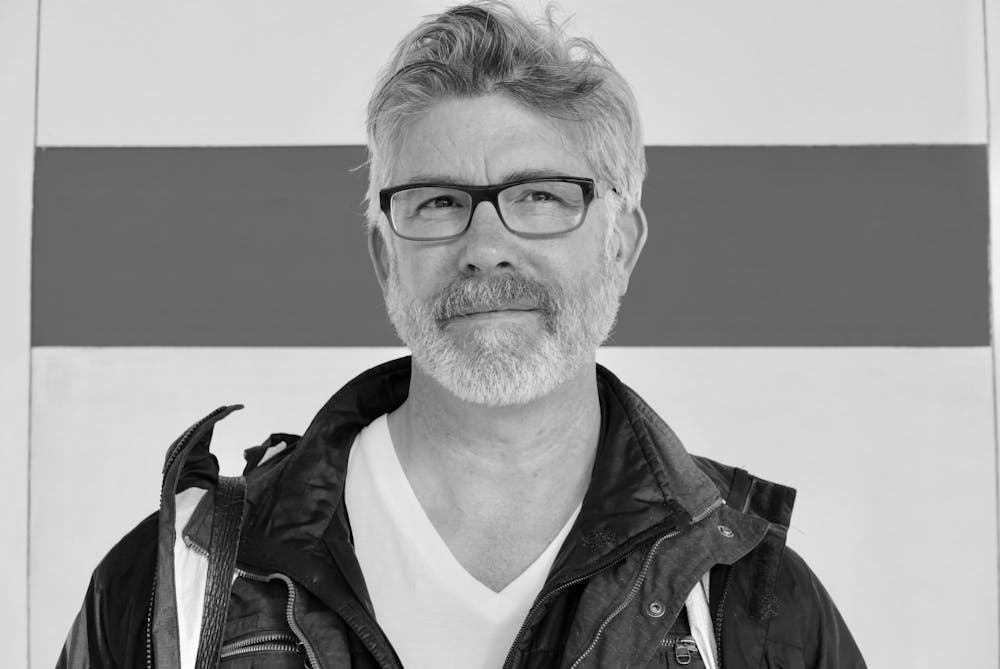The National Book Foundation announced Professor of Literary Arts Laird Hunt’s novel “Zorrie” as one of its five finalists for the National Book Award in the fiction category Oct. 5. The non-profit organization celebrates the most acclaimed works of literature in the country, with the vision of expanding their readership and highlighting their cultural signifiance in national conversation. The Foundation annually announces one winner in each of the five categories: fiction, nonfiction, poetry, translated literature and young people’s literature. The winners, which will be announced on Nov. 17, will receive $10,000 and a bronze sculpture.
Hunt’s novel “Zorrie” follows the life story of Zorrie Underwood, who experiences the difficulties of living in rural, Depression-era Indiana. She spends time working odd jobs in the West, before returning to her home state. At only 176 pages, the novel follows Zorrie’s triumphs, defeats, dreams and personal losses.
Hunt’s inspiration for Zorrie came from his own grandmother and other women in the rural midwest, who took on many tasks such as running farms and raising families.
“'Zorrie' is a book I believe in pretty fiercely. I actually started writing it almost 20 years ago. It’s a fairly early project but one that I set aside. But, it’s based on my experience living on this farm in rural Indiana with my grandmother, who did a lot of the raising of me,” Hunt said.
The short length of the novel was inspired by Gustav Flaubert’s 19th-century novella “A Simple Heart,” which told an entire life story in less than one hundred pages. Hunt wanted to “stay tight” and see how much he could “explore and express in a limited number of pages.”
“It was a really interesting and worthy challenge that I was always happy to have. I was never tempted to make it longer,” Hunt said.
He wanted to ensure that, at the end of the novel, readers understand that every life has complexity, texture and meaning — that there are simply no small lives.
Hunt has written various short works and seven other novels, including “Kind One” and “Neverhome,” which have also received prestigious awards. In Hunt’s work, he finds it important “to stay alive as a writer,” challenging himself to create characters from various backgrounds that make up the historical fabric of America. “Neverhome,” which won the Grand Prix de Littérature Américaine and The Bridge Prize, is about a woman who leaves her husband, disguising herself as a man in order to fight as a Union soldier during the Civil War. For this novel, Hunt spent a significant period of time conducting research on the Civil War period.
As a previous judge for the National Book Award, Hunt understands the quality of works that are in the running for the award and was proud to have even made the longlist. One of Hunt’s proudest accomplishments is receiving the Anisfield-Wolf Book Award for Fiction for his novel “Kind One,” a story about two slave girls who take their white mistress into captivity during the Civil War period. The award is for works which have promoted racial tolerance and diversity.
“To get a call from Skip Gates, who announced I won this prize … and to sit next to Wole Soyinke, who was getting a Lifetime Achievement award, that was pretty darn special to me,” he said.
As a literary arts professor, Hunt noted how he is oftentimes influenced by the “striking conversations” and writing talents of his students.
For aspiring writers, Hunt shared a few words of advice: “Endure. Stay with it,” he said. “If it’s something you do for a couple of years, then that’s great if it makes you happy. But, if you really want to go after it, buckle up and get ready for it to take a while.”

Rebecca Carcieri is an arts & culture editor. She is a senior from Warwick, Rhode Island studying political science.





